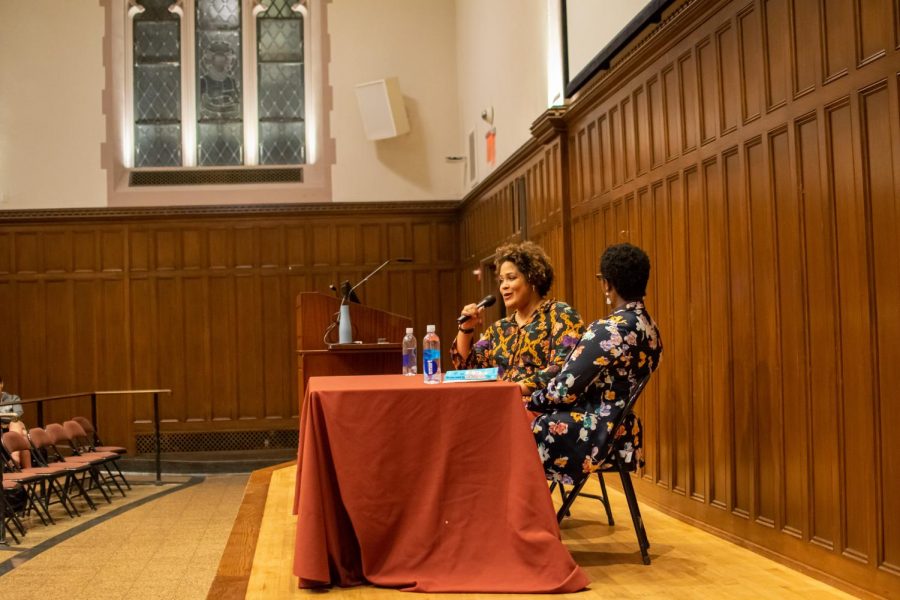So We’re Talking About Race with #TheBronxIsReading
MILEY CAO/THE OBSERVER
The event was held by ‘The Bronx Is Reading,’ the sponsors of The Bronx Book Festival, held at Fordham Rose Hill.
October 2, 2019
On Wednesday, Sept. 25, readers from the Fordham community and from different parts of NYC gathered for “Ijeoma Oluo in Conversation with Ashley C. Ford.” The event was hosted by The Bronx Is Reading, the sponsors of the Bronx Book Festival, at Keating Hall at Fordham Rose Hill. Despite location changes and the late arrival of the speakers, everyone in the auditorium was still excited — some read Oluo’s “So You Want to Talk about Race,” while others shared their expectations for the conversation.
Ijeoma Oluo is a writer of feminist and social justice features for newspapers including The Guardian, The Stranger and The Washington Post. Ashley C. Ford writes, teaches and speaks actively about topics including race, sexuality and body image as the host of the podcast “112BK.”
The event started with Ford asking for Oluo’s thoughts on the people picking up her book. Oluo mentioned people talking about race — some in a perplexed manner, others in a condescending one. The author saw the differences between talking to people of color and talking to white people “something black happens,” she noticed.
The first thing Ford wanted to know Oluo’s thoughts on the mixed criticisms of her book. Oluo was elated to have achieved her initial goal of making the book “of use” instead of producing “a hot take.” This accomplishment manifested itself in various events: a 66-year-old black woman saw her experience reflected in a book for the first time in her life, an interracial couple saved their marriage by discussing her work during their travel and communities read the book together.
Then, with their witty humor, the two speakers discussed their thoughts on social media. Though insisting that she “wouldn’t exist without social media,” Oluo mentioned the drawbacks of these networks when approaching serious issues. People treat conversations on Twitter and Instagram like vacations from real responsibilities, which is not the way to deal with serious conversations on politics, race and gender.
Perhaps the most heartfelt part of the conversation was about education. Oluo asserted that there was “a lack of real education on the history of America.” Reflecting on her experiences, Oluo went from not understanding how she could ever be “the greatest” in a society of white privilege, to her being the only black student who was frequently questioned about her existence in class. To her disappointment, the things taught at school have been, mostly, the “white history,” “white arts” and “white sciences,” reflecting the “white power” even more.
The event ended with Oluo’s eloquent response to an audience question and answer segment. There was an enthusiastic reader asking about a book chapter on privilege, then a teacher in a public high school in the Bronx wanting to know how to further help her students — all of whom are immigrants. The final question was from a Fordham doctoral student. As the only black person in her department, she suffered from constant silent treatments, and hoped to hear from Oluo what Fordham should do to diminish the ongoing racism. After the conversation, the speakers and the audience stayed in the Keating Hall for a while longer — Oluo signed all the paperback books, took pictures with readers, and finally revealed that she is working on a new book, which she expects to be published in May 2020.












